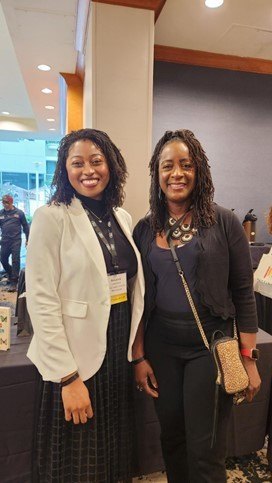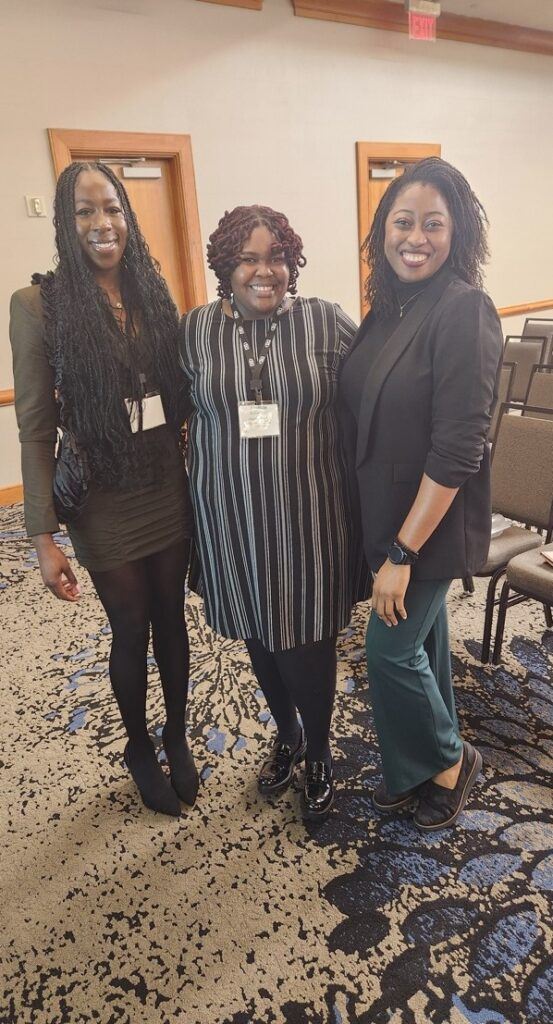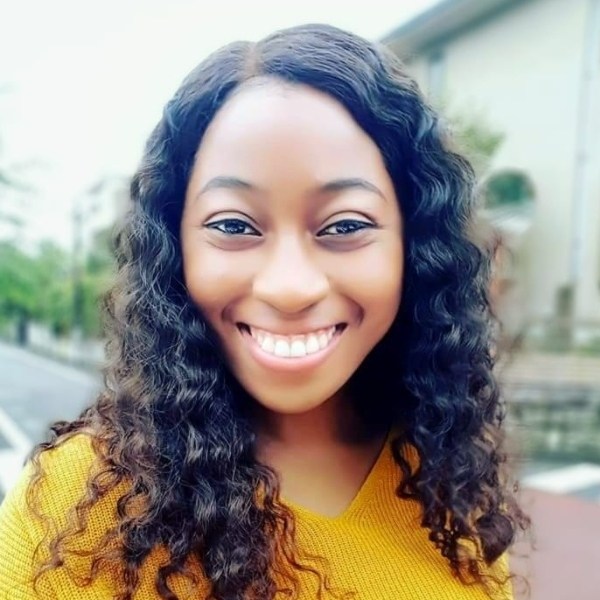BIOP 2024: Highlights and Key Takeaways
March 21, 2024 in Conferences, Publications, & Awards, Culture, Featured
By Roxanne Lawrence
February 22, 2024, marked the inaugural Blacks in Industrial and Organizational Psychology (BIOP) conference. Over 100 professionals, academics, and students converged in Atlanta, Georgia to celebrate and uplift the voices and experiences of people of color in the field of Industrial and Organizational Psychology (I-O). The conference featured engaging discussions on topics such as mitigating unconscious bias in hiring and performance management, navigating Black women’s experiences with Macro and microaggressions in the workplace, and the impact of race and intersectionality on leadership styles and effectiveness on diverse organizations. It was powerful listening to speakers and attendees share their experiences and uniting in a common desire for change.

One point that stood out to me the most was a comment made by Dr. Janice Gassam Asare in her keynote speech. She started by highlighting how the curb cut on the sidewalk, initially meant to allow individuals in wheelchairs to easily transition to and from the sidewalk to the street, is also beneficial to mothers with strollers, bicycle riders, and skateboarders alike. In essence, she analogized this to the idea that when we create systems that support the needs of the most marginalized in the community, everyone stands to benefit. This comment left a lasting impact and is a notion I will take with me going forward.
In a conversation with Shavonne Holman, co-founder of BIOP, she emphasized the importance of representation and shared how the executive board wanted to create something special “for us and by us” through this conference. After listening to the feedback of the attendees, I can say Shavonne and her team’s intentions were certainly realized. One attendee recalled with awe and jubilance how a presenter shared a story about her collard greens recipe. She expressed how one might initially find such a story innocuous, but to her, it was comforting to hear presenters share stories and analogies to which she could relate.

After her presentation, I spoke with Dr. Gena Cox, author of the book Leading Inclusion: Drive Change Your Employees Can See and Feel and sponsor of the BIOP conference. She shared that when she heard about the conference, she just had to support the work and vision and is looking forward to more of its kind going forward. This sentiment is shared by FMP, a proud sponsor of this year’s BIOP conference.
Altogether, it was great to be amongst “kinfolks” as the keynote speaker Dr. Gregory Pennington phrased it. The small setting made it more intimate and allowed for easier networking. I was able to speak with and encourage students at various stages of their degrees and make professional connections. I hope to see this initiative echoed in other demographic groups. As I sat in the sessions, I observed individuals who are normally the majority taking the place of the minority and listening to the unique experiences of Blacks in the workplace. Often times, we navigate the workplace without fully grasping our coworkers’ experiences and intersectionality. I encourage readers of this blog to consider: wouldn’t it be great to flip the stage and get a glimpse of how it feels to be a minority in a space created for and by another minority group?

Dr. Roxanne Lawrence is an industrial and organizational psychologist with senior levels of expertise in Diversity, Equity, Inclusion, and Accessibility (DEIA). She serves as a Human Capital Consultant at FMP, offering her expertise in DEIA to several Federal agencies. Dr. Lawrence has 3 years of experience researching cultural differences in emotion regulation within the service industry and has published her work on the moderating effects of cultural values on the relationship between emotion suppression and employee well-being in peer-reviewed journal Current Psychology.